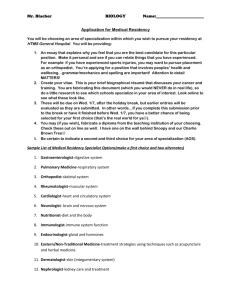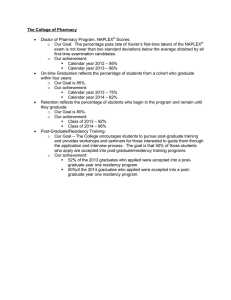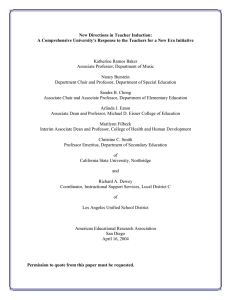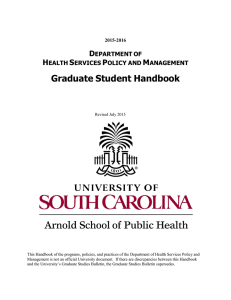Education Preparation Reform Act Commentary by Dr. Melissa Heston, Coordinator... Education
advertisement
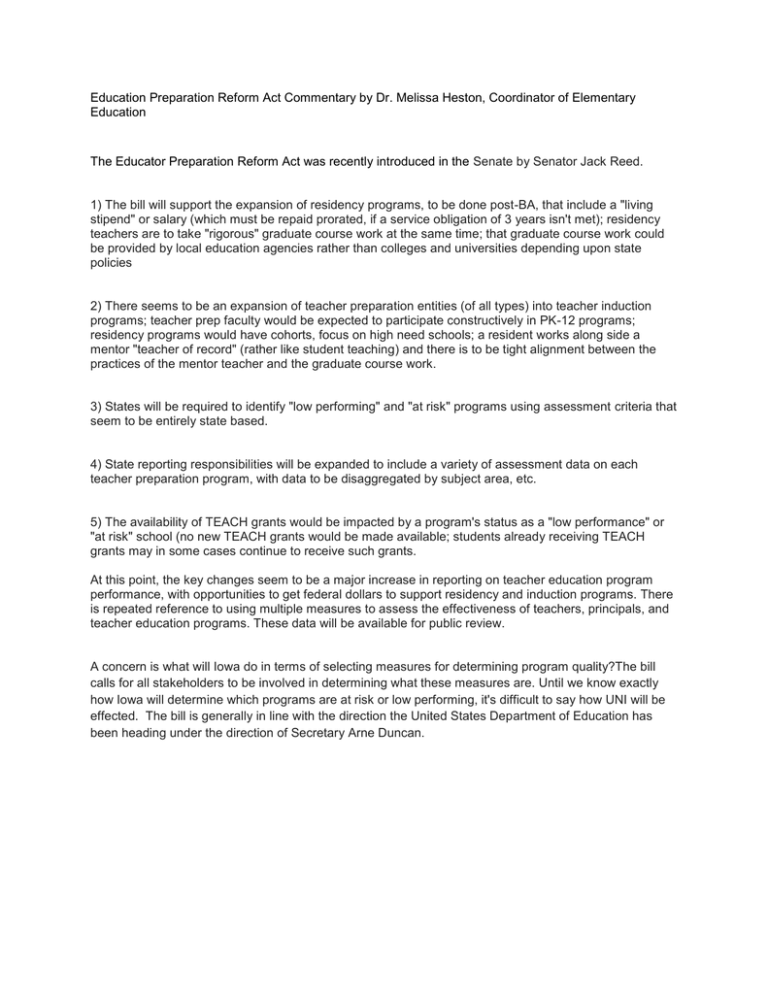
Education Preparation Reform Act Commentary by Dr. Melissa Heston, Coordinator of Elementary Education The Educator Preparation Reform Act was recently introduced in the Senate by Senator Jack Reed. 1) The bill will support the expansion of residency programs, to be done post-BA, that include a "living stipend" or salary (which must be repaid prorated, if a service obligation of 3 years isn't met); residency teachers are to take "rigorous" graduate course work at the same time; that graduate course work could be provided by local education agencies rather than colleges and universities depending upon state policies 2) There seems to be an expansion of teacher preparation entities (of all types) into teacher induction programs; teacher prep faculty would be expected to participate constructively in PK-12 programs; residency programs would have cohorts, focus on high need schools; a resident works along side a mentor "teacher of record" (rather like student teaching) and there is to be tight alignment between the practices of the mentor teacher and the graduate course work. 3) States will be required to identify "low performing" and "at risk" programs using assessment criteria that seem to be entirely state based. 4) State reporting responsibilities will be expanded to include a variety of assessment data on each teacher preparation program, with data to be disaggregated by subject area, etc. 5) The availability of TEACH grants would be impacted by a program's status as a "low performance" or "at risk" school (no new TEACH grants would be made available; students already receiving TEACH grants may in some cases continue to receive such grants. At this point, the key changes seem to be a major increase in reporting on teacher education program performance, with opportunities to get federal dollars to support residency and induction programs. There is repeated reference to using multiple measures to assess the effectiveness of teachers, principals, and teacher education programs. These data will be available for public review. A concern is what will Iowa do in terms of selecting measures for determining program quality?The bill calls for all stakeholders to be involved in determining what these measures are. Until we know exactly how Iowa will determine which programs are at risk or low performing, it's difficult to say how UNI will be effected. The bill is generally in line with the direction the United States Department of Education has been heading under the direction of Secretary Arne Duncan.
